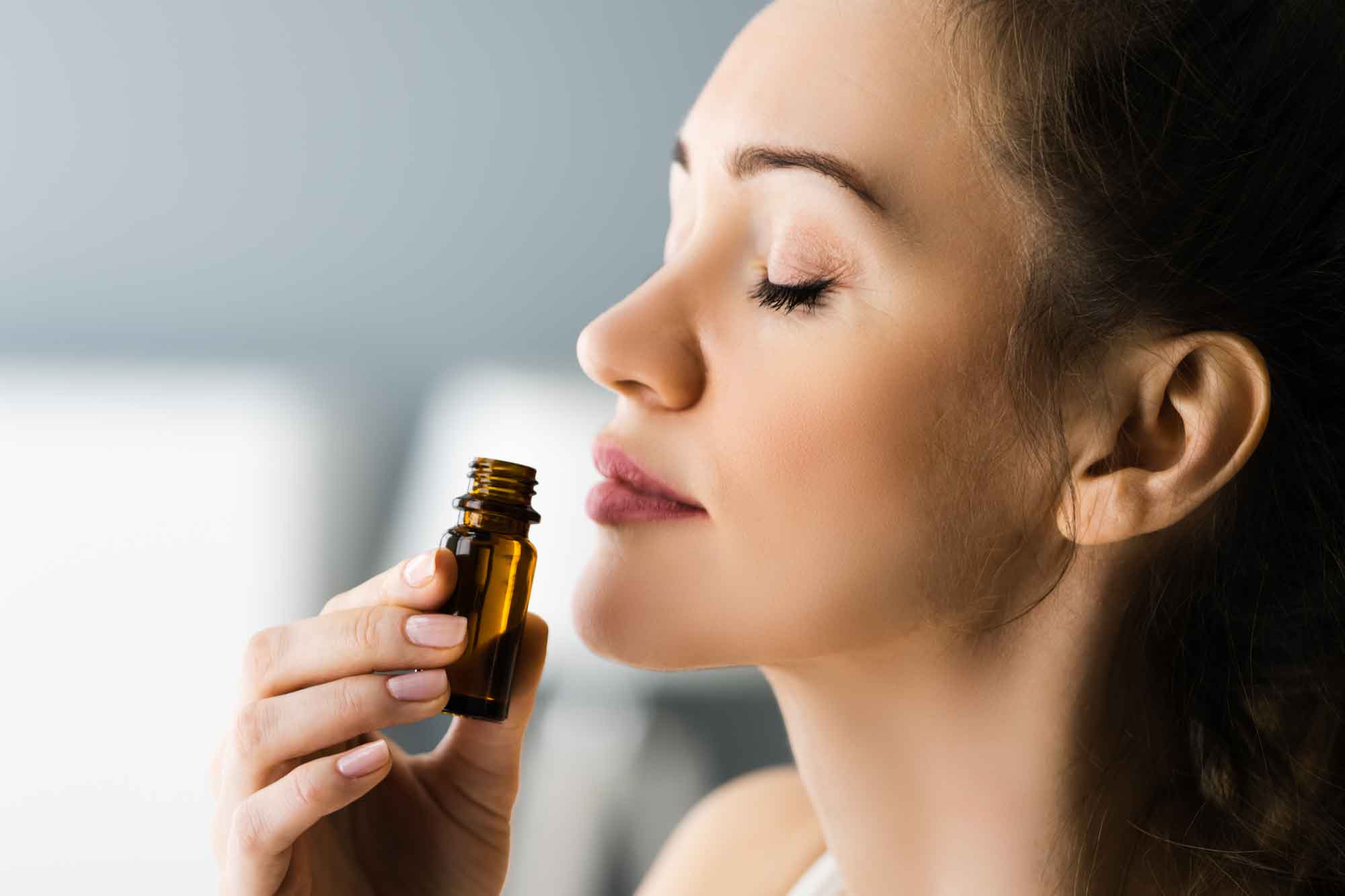
Smell Your Stress Away with Essential Oils
WRITTEN BY JOSEPH YANG AND DR. SWATHI
Stress is an inevitable daily occurrence, and prolonged exposure contributes to cardiovascular and psychological conditions. On top of mindfulness meditation, further ease your mind by surrounding your environment with a relaxing blend of aromas. Aromatherapy is a natural, holistic therapy that involves the use of essential oils (EOs) to heal the person’s physical, mental, and spiritual well-being. This therapy has been practiced by ancient civilizations including Egypt, China, and India for thousands of years and is gaining increasing attention in the 21st century given its antioxidant, anti-inflammatory, antifungal, and antibacterial effects. Primarily it has been used in addition to conventional and natural medicines to help cope with stress, insomnia, pain, infections, and psychological health by inhaling, applying on the skin, and rarely, ingesting. For this article, we will focus on EOs and the olfactory system.
Our sense of smell plays a crucial role in how we communicate with our surroundings; it creates memories to affect our mental state and trigger feelings of relaxation, fear, and happiness. Like our other senses, the olfactory system is a complex system; but the major difference lies in its direct innervation to our brain, hence labeling it as one of the fastest routes of entry to our body. Because of this, we instantly respond to the delicious smell of baked goods or immediately react to dangerous situations, like fires! As we inhale, volatile compounds travel up our nasal passage and dissolve through the mucous layer of the olfactory epithelium. Once trapped in the mucous layer, they bind to their respective olfactory receptor and stimulate a signal to the olfactory bulb. The olfactory bulb then relays the information directly to the limbic system and hypothalamus of our brain to trigger a response. Based on our associated memory the fragrance, these signals cause the release of neurotransmitters and affect our autonomic nervous system.
EOs are concentrated fragrances extracted from flowers, leaves, fruits, and stalks. They are composed of volatile compounds, such as benzoids, phenylpropanoids, and terpenes, providing plants with their own quintessential aroma. Chemical composition varies based on multiple factors including geographic location, extraction process and time, and drying method. This is important to note because variation in chemical composition affects the therapeutic effectiveness of EOs.
Let’s look at lavender. Linalool and linalyl acetate are compounds found in lavender that have shown to exert anxiolytic (anti-anxiety) effects. However, lavender found in Algeria has trace amounts of both compared to lavender in India. But, without getting caught up in the details, in general, some of the most popular essential oils that have been studied for stress relief include roman chamomile, rose, lavender, bergamot, lemongrass, orange, ylang ylang, and frankincense. In a review of that summarized the effects of these EOs on neurological function, it proposed the following mechanisms for stress relief:
- Downregulate inflammatory response
- Increase serotonin levels while decreasing glucocorticoids
- Stimulation of dopaminergic system
- Exert anxiolytic (anti-anxiety) effects by activating the GABAergic system
- Decrease sympathetic nervous system activity and increase parasympathetic nervous system activity
In a meta-analysis including five randomized controlled trials to evaluate aromatherapy on stress management in healthy adults, it concluded that inhalation of aromas (lavender, sage, peppermint, bergamot) compared to no aroma have the most favorable effects when analyzing the change in cortisol levels. However, these trials had a few limitations, thus prompting for further research to make a firm conclusion. Nevertheless, this is a great steppingstone to the future of alternative medicine!
Aromatherapy is a natural and safe therapy that has existed for thousands of years. While studies are ongoing to paint a better picture for its use, it appears that its implication may impact our overall quality of life. In addition, it can be easily combined with other stress relieving therapies, such as mindfulness meditation. It is commercially available in the form of candles, or can be dropped directly into diffusers.
Quickly unwind your mind and rejuvenate your body with the wonderful scents in the world of essential oils!
Resources
- Ali B, Al-Wabel NA, Shams S, et al. Essential oils used in aromatherapy: A systematic review. Asian Pac J Trop Biomed. 2015;5(8):601–611.
- Bialon M, Krzysko-Lupicka T, Nowakowska-Bogdan E, et al. Chemical Composition of Two Different Lavendar Essential Oils and Their Effect on Facial Skin Microbiota. Molecules. 2019;24(3720):1–17.
- Hur MH, Song JA, Lee J, et al. Aromatherapy for stress reduction in healthy adults: a systematic review and meta-analysis of randomized clinical trials. Maturitas. 2014;79(2014):362–369.
- Koyama S, Heinbockel T. The Effects of Essential Oils and Terpenes in Relation to Their Routes of Intake and Application. Int J Mol Sci. 2020; 21(5):1–36.
- Lizarraga-Valderrama LR. Effects of essential oils on the central nervous system: Focus on mental health. Psychotherapy Research. 2020; 1–23.
- Scott E. Using Aromatherapy for Relieving Your Stress. Verywell Mind. https://www.verywellmind.com/aromatherapy-for-stress-research-and-techniques-3144598#citation-1.
- Sowndharajan K, Kim S. Influence of Fragrances on Human Psychophysiological Activity: With Special Reference to Human Electroencephalographic Response. Sci Pharm. 2016; 84(4):724–752.
--
This article was edited by Dr. Swathi and written by Elēment Apothēc Scientific Communications Intern, Joseph Yang. He is a Doctor of Pharmacy (PharmD) student at University of Missouri-Kansas City School of Pharmacy in Kansas City, Missouri.











